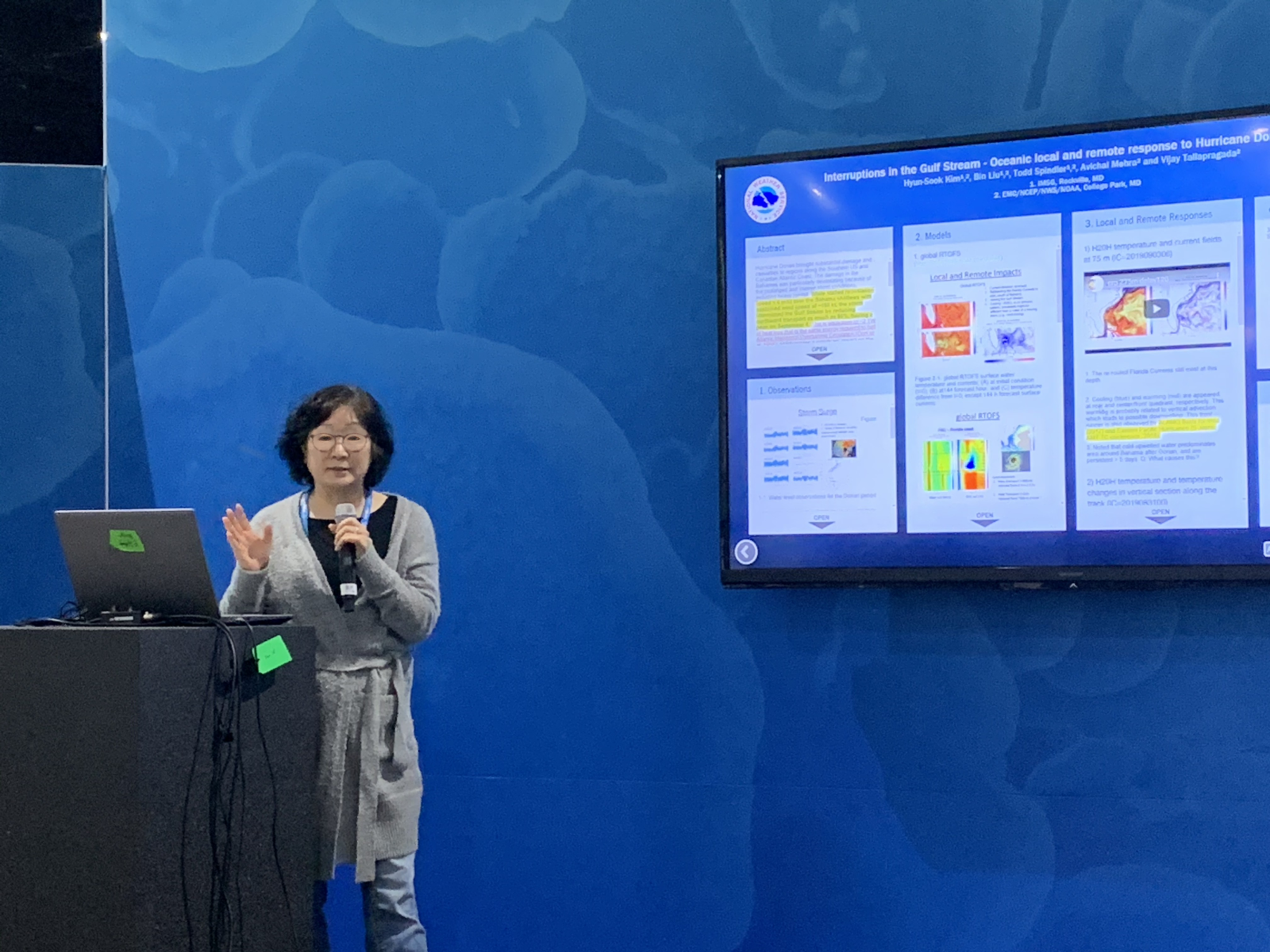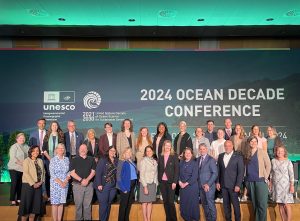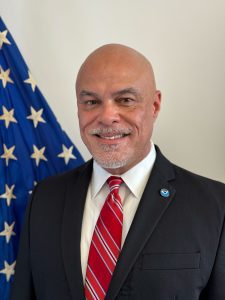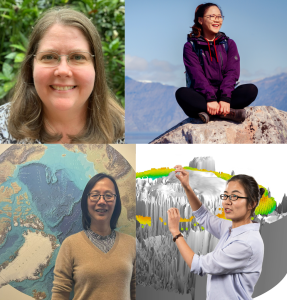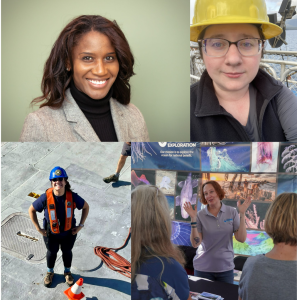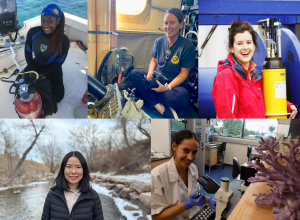Hyun-Sook Kim is a research scientist in the Physical Oceanography Division at NOAA’s Atlantic Oceanographic and Meteorological Laboratory. Her research is focused on better understanding the interactions between the ocean and extreme weather events using coupled numerical forecast systems. “Coupled” models bring two or more models together – an ocean and atmospheric model, for instance – in order to build a more comprehensive model.
What drew you to your current career or field?
Science has always been fascinating to me because it is the study of the natural world following theoretical principles. I had the option of pursuing basic physics as a career, but instead chose to study extreme weather events using numerical modeling systems because of the more practical nature of the research and benefit to society.
What projects or research are you working on now?
I’m working to improve a coupled hurricane-ocean modeling system for an Earth system model by adding a wave sub-model and physics so that it better simulates the natural world. Another project of interest is the assimilation of observations into ocean models and strongly coupled data assimilation for coupled modeling systems. Better hurricane models lead to better hurricane forecasts, so this work is critical for building a system to produce more accurate forecasts of these destructive storms and for keeping coastal communities prepared and safe.
What do you enjoy most about your work?
Discovery! It is rewarding to know the tools I build provide scientific evidence that supports research and contributes to the advancement of physics in modeling.
Do you have a favorite moment or accomplishment in your career?
Yes! It is in knowing that coupled modeling systems transitioned to operational numerical modeling are still providing valuable guidance about typhoons and cyclones to forecasters around the globe.
Who do you look to as a role model and why?
A person, for example, Ruth Bader Ginsburg, who is passionate about what they believe and strives with strong conviction to accomplish.
What gives you hope, either with regard to science, your field in NOAA, or in general?
The encouragement of community involvement from academic and government researchers working together toward the common goal of building and improving an Earth System model and data assimilation framework. The awareness that ocean observations matter is also important. As an oceanographer educated in field observations and now working on hurricane forecasts, I have strongly felt that ocean observations were needed to improve forecast skill. It is widely known that the ocean is the main heat source for hurricanes, but often the ocean’s role has been less weighted in research and operational forecasts. Recently, NOAA’s Global Ocean Monitoring and Observing program office initiated the Extreme Events-Ocean Observation Task Team (EEOOTT) to support ocean observations for hurricane and extreme weather studies. This gives me hope for better science, research, and forecasts.
Over the course of your career, what changes or progress have you seen for women in science and science policy?
Recognition; increased efforts on gender equality and diversity; encouragement for higher education and leadership. The recognition of women’s rights has a short history. Women are still under-represented and under-appreciated in science. But their contributions to science and science policy are irrefutable. It took about 10 years after the creation of the United Nations Entity for Gender Equality and the Empowerment of Women in 2010 for the National Strategy on Gender Equity and Equality to be published in October 2021 and acted upon by promoting more women in leadership roles than ever before. Changes are coming, and I am looking forward to seeing more of such changes.
Looking back, what would you tell yourself when you were 12 years old? Or what advice would you give to a woman just starting out in her career?
Unlike when I was 12 years old, now there are many resources available within reach that provide valuable information for women to plan their careers. The most important thing, however, is to recognize your passion and assess your aptitude. In most cases, the career you envisioned at 12 years old won’t be exactly what you end up doing, for a variety of reasons. This is not a bad thing! Instead, it is an opportunity to refine and enhance or alter a career that suits you the best. I liked science and mathematics and envisioned myself being a teacher when I was young. But, I found over the course of my life that there were many other opportunities besides teaching, and I chose this current profession. I am so grateful to friends and family for their honest and selfless support for me standing here right now.
